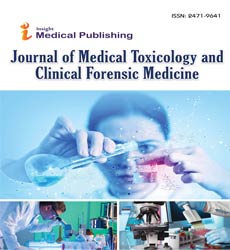Covid-19 And Declining Sperm Counts: Measurements On Sperm Parameters And Overall Male Reproductive Performance
Panayiotis Zavos
Panayiotis Zavos*
Andrology Institute of America, USA
Abstract
Male infertility is linked to some viral infections including human papillomavirus (HPV), herpes simplex viruses (HSV) and human immunodeficiency viruses (HIVs). As for acute respiratory syndrome coronavirus 2 (SARSâ?ÂCoVâ?Â2), its effects on worldwide declines in sperm count and fertility have not been researched thoroughly. With the recent increase of viral infections due to the pandemic, the potential negative impacts that SARS-CoV-2 will have on male reproductive organs and male fertility have raised countless concerns. This presentation aims to discuss the possible effects that the SARS-CoV-2 pandemic may have on an already declining male reproductive success while integrating the results of recent studies focusing on similar topics. Furthermore, it will also mention the future implications that come with a more infertile population. Within the various articles studied, it has become apparent that the SARS-CoV-2 pandemic has and will only decrease men’s sperm quality further. These findings became apparent through the study of oxidative stress established through the sperm’s production of reactive oxygen species and the COVID-19 virus’ ability to attack human spermatozoa produced in the testes due to expression of the ACE2 gene. As for the decline in male fertility prior to the SARS-CoV-2 pandemic, there are many other factors to be discussed, some of which include tobacco consumption, alcoholism, diet, electronics, and higher rates of testicular cancer. Would the Covid-19 have similar effects on the ovary and overall female reproductive performance?
Biograph
Prof. Dr. Panayiotis Zavos, Ed.S., Ph.D., Director & Chief of Andrology and Theodora Zavos, Visiting Scholar, Andrology Institute of America, Lexington, Kentucky USA.

Open Access Journals
- Aquaculture & Veterinary Science
- Chemistry & Chemical Sciences
- Clinical Sciences
- Engineering
- General Science
- Genetics & Molecular Biology
- Health Care & Nursing
- Immunology & Microbiology
- Materials Science
- Mathematics & Physics
- Medical Sciences
- Neurology & Psychiatry
- Oncology & Cancer Science
- Pharmaceutical Sciences
